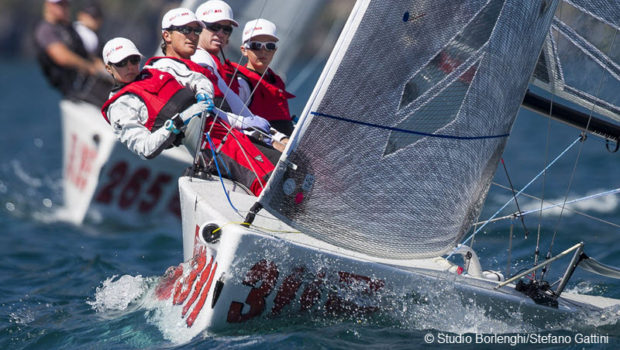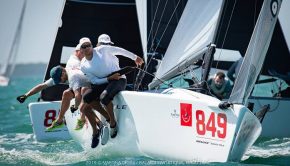Addressing the Rise in Professional Sailors
Published on June 22nd, 2016
One design class racing is typically the domain for those sailors that embrace community and fellowship as much as competition. However, the investment needed to remain competitive in certain classes is now disrupting the tenets of this sector of the sport.
There are very few one design classes that restrict Group 3 (professional) sailors, and in most classes without restriction, it is also uncommon for sailors to get paid. But the prevalence for top crew getting paid in certain classes is growing, and for boat owners that like to occasionally see the front of the fleet, they need to either pay up or move out.
Commenting on the situation is Antony Matusch, past chairman of the ISAF Classification Commission which created the International Sailor Classification Code used to categorize sailors…
The issue of how classes and events could react to the rise in professional sailors was one I came across continuously. Whilst the Commission always stayed neutral, we were able to exchange ideas from the different classes and help them write their rules, hopefully helping them to avoid the many pitfalls that exist.
There were and still are, I believe, five options for a class or event to consider:
• Do nothing.
• Create a Corinthian Division within each event.
• Not allow professionals.
• Run both open and Corinthian only events.
• Limit the number or role of the professionals.
The great danger to a class that does nothing is that it slowly loses its Corinthian owners who give up in despair. Then the Professionals, who very rarely have class loyalty (though there are some notable exceptions), move off to the next exciting boat when it comes along and leave behind a class that never recovers. I can think of several.
My own experience showed that if a Corinthian Division within an Open event is really well organised, it is a very effective solution. The Melges 24 is a fine example but I am sure there are now others.
Key points are to give equal prominence to both results plus similar prizes, PR, and shore events that bring everyone together.
Getting Professionals to help the Corinthians by way of pre-event coaching, a review of each day’s racing and variations of these ideas could also make a big difference.
The choice that has been the least successful, to my mind, is the one which has mixed Professional and Corinthian crews with limits on the numbers of each. Too often it leads to what was once described as ‘the best amateur crew that money can buy’. If this happens, eventually the honest or less well-off owner eventually walks away.
There is no doubt that this complex issue is now one many classes have to face up to. There is no easy answer but there are some that have really managed it well and can be used as role models. Perhaps joint meetings of class managements to discuss this topic would be a good way forward.









 We’ll keep your information safe.
We’ll keep your information safe.